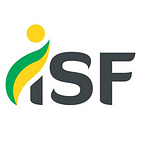Meet ISF’s Technical Team: Hélène Khan Niazi
The global pandemic has demonstrated the importance of stable, strong and sustainable food systems. At the very beginning of the food supply chain is seed, which many countries have now recognized as an essential product. The COVID-19 crisis put a spotlight on the need for seed to move around the world and for the seed sector to continue to innovate. Farmers all over the world rely on access to quality seed in order to grow healthy crops. The food systems of tomorrow depend on the seeds we plant today.
The International Seed Federation (ISF) understands this very well. As the voice of the international seed industry, ISF represents the interests of those active in the research, breeding, production and marketing of seed of agricultural, horticultural and ornamental plant species. Today, the global association represents around 60 national member associations, including ANOVE, along with 7500 seed companies worldwide.
For the next three articles on this blog, we interview ISF’s Technical Team composed of Hélène Khan Niazi, Szabolcs Ruthner and Rose Souza Richards to hear about their work and priorities. As part of ISF Secretariat based in Switzerland, they are supporting the organization’s Key Strategic Objectives through the development of seed sector policy at the international level and engaging with members all over the world.
Part 1 — Hélène Khan Niazi, ISF International Agriculture Manager
How did you get into seed? Tell us a bit about your background and professional experience.
Hélène: After graduating from the Agricultural Law Masters of La Sorbonne in Paris, I looked for a job as a company lawyer because I did not want to become a barrister. The French Seed Union was looking for a lawyer and I got the position there and enjoyed the French seed sector for 3 years before joining ISF. I deal with the same kind of topics at ISF as I used to at the French level, except that I am now corresponding with the international organizations related to Intellectual Property (UPOV, WIPO) and Biodiversity (ITPGRFA, CBD, Nagoya Protocol).
What is your role at ISF?
Hélène: I represent the diversity of the seed sector in the international debates where policy makers, NGOs, civil society representatives are joining forces (or sometimes opposing forces) to prepare the international regulations that will be then implemented at the national level. I share this overall mission with my other colleagues from the Technical Hub and we have different topics of focus. For my part, I deal with Intellectual Property Rights and Biodiversity, which includes access and benefit sharing of genetic resources. These two areas of expertise are focused on the breeding process. I also take care of the Forage and Turf Section, which plays a critical role in the food value chain by providing feed to the animals.
What is your view on intellectual property? Why is it such a hotly debated topic?
Hélène: Intellectual property is indeed a much-debated topic, within and outside our organization.
Outside our organization we are facing critics for an alleged appropriation of living organisms. What can be protected, what shouldn’t be protected? Within our organization, we have debates on the legal tools and scope of the protection: how do we promote innovation but ensure that research and breeding are still rewarded? There is no straightforward answer to these questions. That is what makes intellectual property an “intellectually” interesting topic. One thing we all agree on is that breeding should be encouraged to provide farmers with quality seed in a sustainable way.
You mentioned that biodiversity is another topic you are working on. How does the seed sector contribute to benefit sharing when using genetic resources?
Hélène: Access to and use of diverse genetic resources is a key element to be able to breed new varieties. However, depending on whom these genetic resources belong to, benefit sharing has to be done. Legal instruments (such as the Nagoya Protocol and the International Treaty) have put in place some requirements on users to share benefits. Debates are still occurring on the amount and the way the benefit should be shared. Private breeders are not reluctant to share monetary benefit; however, it is important to realize that the non-financial benefit sharing (in-kind) is much more beneficial and much more important.#
